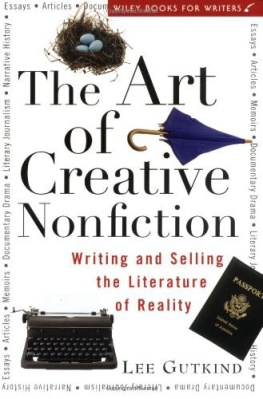Erwin Anton Gutkind - Creative demobilisation
Here you can read online Erwin Anton Gutkind - Creative demobilisation full text of the book (entire story) in english for free. Download pdf and epub, get meaning, cover and reviews about this ebook. year: 1998, publisher: Routledge, genre: Politics. Description of the work, (preface) as well as reviews are available. Best literature library LitArk.com created for fans of good reading and offers a wide selection of genres:
Romance novel
Science fiction
Adventure
Detective
Science
History
Home and family
Prose
Art
Politics
Computer
Non-fiction
Religion
Business
Children
Humor
Choose a favorite category and find really read worthwhile books. Enjoy immersion in the world of imagination, feel the emotions of the characters or learn something new for yourself, make an fascinating discovery.

- Book:Creative demobilisation
- Author:
- Publisher:Routledge
- Genre:
- Year:1998
- Rating:3 / 5
- Favourites:Add to favourites
- Your mark:
- 60
- 1
- 2
- 3
- 4
- 5
Creative demobilisation: summary, description and annotation
We offer to read an annotation, description, summary or preface (depends on what the author of the book "Creative demobilisation" wrote himself). If you haven't found the necessary information about the book — write in the comments, we will try to find it.
Creative demobilisation — read online for free the complete book (whole text) full work
Below is the text of the book, divided by pages. System saving the place of the last page read, allows you to conveniently read the book "Creative demobilisation" online for free, without having to search again every time where you left off. Put a bookmark, and you can go to the page where you finished reading at any time.
Font size:
Interval:
Bookmark:


In 18 Volumes
| I | The Church in Social Work | Hall and Howes |
| II | Creative Demobilisation (Part One) | Gutkind |
| III | Creative Demobilisation (Part Two) | Gutkind |
| IV | Higher Civil Servants in Britain | Kelsall |
| V | Housing Needs and Planning Policy | Cullingworth |
| VI | Penelope Hall's Social Services of England and Wales | Forder |
| (The above title is not available through Routledge in North America) | ||
| VII | The Price of Social Security | Williams |
| VIII | The Professional Task in Welfare Practice | Nokes |
| IX | Social Casework | Timms |
| X | Social Policies for Old Age | Shenfield |
| XI | Social Security: Beveridge and After | George |
| XII | Social Services in British Industry | Young |
| XIII | Social Services of Modern England | Hall |
| XIV | The Sociology of Housing | Morris and Mogey |
| XV | Voluntary Social Services since 1918 | Mess |
| XVI | Voluntary Societies and Social Policy | Rooff |
| XVII | Voluntary Work and the Welfare State | Morris |
| XVIII | Working with Community Groups | Goetschius |

by Routledge
2 Park Square, Milton Park, Abingdon, Oxon, OX14 4RN
A CIP catalogue record for this book
is available from the British Library
ISBN 0-415-17714-6
Public Policy, Welfare and Social Work: 18 Volumes
ISBN 0-415-17831-2
The International Library of Sociology: 274 Volumes
ISBN 0-415-17838-X
The publisher has gone to great lengths to ensure the quality of this reprint but points out that some imperfections in the original may be apparent
 |
Font size:
Interval:
Bookmark:
Similar books «Creative demobilisation»
Look at similar books to Creative demobilisation. We have selected literature similar in name and meaning in the hope of providing readers with more options to find new, interesting, not yet read works.
Discussion, reviews of the book Creative demobilisation and just readers' own opinions. Leave your comments, write what you think about the work, its meaning or the main characters. Specify what exactly you liked and what you didn't like, and why you think so.






